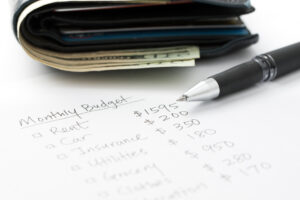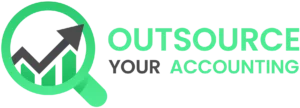It’s never too late to start getting your finances in order…unless you owe a great deal of money that you have to pay back in an incredibly short amount of time, then good luck to you. But if that situation doesn’t describe you, it’s always better to get your finances in order as early as possible.
The usual advice of saving can be hard to do, especially without a step-by-step explanation or instructions. To get your personal finances in order you need to go through certain steps, breaking it down into different parts makes it more manageable.

Determining Monthly Income
This part is extremely simple if your only source of income is your day job. Just look at how much you take home at the end of the month and you have your number.
This becomes a bigger task if you have other sources of income such as freelance jobs or passive income from something like owning property. The nature of freelancing is that it is not stable. Some months you may get projects flowing to you, while other months, it may be drastically reduced. In these cases, you should take the average amount earned over the past 3 months to get a number.
For passive income, as long as money is flowing, it is as easy as looking at how much you took in that month.
Once you have all the numbers added up, you can proceed to the next step.

Determining Monthly Expenses
This step is as straightforward as the last one. Take the amount you pay in a month and total it. This step can get more complicated depending on what your goals are. For example, if your goal is to save money by cutting back, you should break your expenses down into two groups:
- Essential Expenses
- Luxury Expenses
Essential expenses involve items such as rent, utilities, food, any incurred debt, etc. Items that you have to pay or are required to live or work. Items listed under this should be critical to your life, meaning extra expenses such as entertainment or leisure activities should not go here.
Luxury expenses would be anything not needed to live or work but are there for enjoyment. Buying a new TV, a new phone, streaming services such as Netflix, and other entertainment-style items fall under this category.
After you have the total monthly expenses for essential and luxury expenses, you should add them together to get one big number.

Create A Budget
Hopefully, your income is a bigger number than your expenses. If it isn’t, you should take a look at your spending habits and find places where you can reduce the money going out. If that still isn’t enough you’ll have to look into cutting back on your essentials, this may mean eating different food to something like moving to a more affordable location.
Making sure to pay off any incurred debt is critical to financial freedom. Getting rid of debt will allow you the financial freedom to use your capital on future goals and whatever else you want. You will have to reallocate a monthly budget once your debt is paid, as you’ll have much more capital to move around, depending on the debt amount of course.
Your goal is to have excess cash after all expenses are paid. If you can do this without having to reduce anywhere, you’re well on your way to being more organized financially.

Create Separate Bank Accounts
Your aim is to have 4 bank accounts, each with its own specific purpose but can be broken down into 2 savings and 2 checking accounts. Ideally, you want an account for your monthly expenses, a separate account for long-term savings, an “other” or miscellaneous expenses, and a rainy day or emergency fund.
Monthly Expense Account
As the name suggests, this is an account specifically made to hold the funds for monthly expenses. This can be a checking account as money in it will revolve in and out. The money put in should always be enough to cover all expenses for the month, while the money going out should only be used for those bills.
Savings Account
A savings account should mostly have money going in and not out. If you don’t have a rainy day fund, this is where you’ll be pulling money from during emergency situations. These accounts should be long-term savings accounts as the money you’ll accrue will be bigger due to the higher interest rates.
“Other” Expenses
This account is closely related to the luxury expenses mentioned previously. Anything that isn’t a bill should come out of here. Food at restaurants, gifts, that brand new pair of shoes you’ve been eyeing, anything that isn’t a recurring necessary bill should come out of here. Do note that there are reoccurring luxury expenses, as mentioned before, such as Netflix or any other subscription service not used for work.
Rainy Day Or Emergency Fund
This savings account should only be accessed for emergencies. These could be medical emergencies, a car breaking down, a way to pay for expenses for the sudden loss of a job, etc. Experts suggest saving at least 6 months of expenses worth if you’re the sole earner, while households with 2 earners should have at least 3 months of expenses worth of savings.
Being disciplined enough not to pull money from this account will ensure that you have enough cash during emergencies. Eating out with friends last minute, buying that brand new pair of Jordans that just dropped, or any other impulse buys don’t count as an emergency. Take cash from the proper bank accounts in order to avoid messing with your finances.
The Wrap Up
Staying organized and disciplined are keys to getting your finances in order. Start at the beginning by figuring out exactly how much money you have to manage. After figuring out how much you have, you need to find out how much cash you’re losing each month, this will let you create a budget so you can properly see where you are financially. Finally, separating your finances into different accounts that are only used for specific purposes will help you see exactly where you are financially in real time.
Staying true to yourself and only using each account for its intended purposes will help you stay financially organized. No frivolous spending and you will never have to worry about being late on a payment or whether or not you paid your bills. Within reason, you will have a certain level of financial freedom that you didn’t have before.
